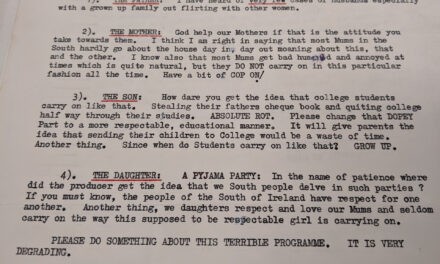ECREA’S 8th European Communication Conference
The European Communication Research and Education Association (ECREA) in partnership with the University of Minho call for papers to be presented at the 8th European Communication Conference, to be held in Braga, Portugal, from 2 October to 5 October 2020.
ECREA and the Communication and Society Research Centre of University of Minho are delighted to host the 8th European Communication Conference (ECC). The Conference has chosen the key theme ‘Communication and trust: building safe, sustainable and promising futures. Organisers call for proposals addressing (but not limited to) the main conference theme and relating to ECREA Sections, Networks or Temporary Working Groups.
Conference theme
What futures are we building up? What is the role of media and communication in these processes? Considering the pace of technological change and the way it is reshaping economy and culture, what type of adaptations and commitments are being asked of citizens and to what extent are institutions and policy makers engaged in achieving solutions that are both progressive and sustainable? What type of social, political and cultural futures are media and communication inducing and modelling? What relations exist between them and what are their main normative cornerstones? These are questions of critical interest for the 2020 ECREA conference. Scholars are invited to question the relevance of communication studies in face of societal challenges today and for generations to come.
Acceleration, speed and technological development are present in all dimensions of life, everywhere and at every level. Global forms of culture and global market dynamics are intensely shaping the nature of citizens’ lives and altering the way they think and relate to institutions. Trust is being eroded; some of its building blocks, such as communication for freedom, empowerment, development and democratization are being reconfigured and gaining multiple and often contradictory meanings. Thereby, creating new inequalities and vulnerabilities in Europe and around the world whilst institutions seem weaker, more ineffective or late in their reactions.
There is a general academic perception that citizens everywhere are now inhabiting spaces of higher suspicion, uncertainty and privacy invasion at different levels of their life, which make them easy prey for different types of power brokers. Many relevant questions in communication studies can be addressed regarding ways in which fear, uncertainty, and social isolation affect citizens according to structuring variables such as race, ethnicity, gender or age.
If citizens are experiencing this general state of ontological insecurity, politicians and institutions appear to hesitate in the face of emergent problems requiring systemic, determined and eventually global scale well-sought answers. Climate change and environment urgencies are obviously requiring new insights from the media and communication field with particular attention to medium and long-term effects of human actions. The proactive actions of citizens and social movements also deserve particular attention.
Scholars are defied to address emerging responsibilities of the media and communication field vis-à-vis new social and environmental asymmetries. The quality of public information is obviously key to this debate. What role should the media play deconstruing technological determinisms and finding paths to increase trust, confidence and safety? How to manage the relationships between the local and the global so that internet giants’ activities do not govern the common symbolic environment? How to improve transparency and the defence of the public interest, and what type of public interest is still possible to identify? By proposing the theme ‘Communication and trust: building safe, sustainable and promising futures’, the conference should provide an opportunity to diagnose, discuss and rethink the role and responsibilities of academics and professionals in the reading of present circumstances and in the anticipation of future challenges.
Submission and deadline
Proposals for individual papers, panels, and posters can be submitted to one of ECREA Sections, Temporary Working Groups and Networks through the ECREA 2020 submission platform until 15 January 2020. Submission opens on 15 October 2019.
Abstracts should be written in English and contain a clear outline of the argument, theoretical framework, and, where applicable, methodology and results. Abstracts should be between 300 and 500 words (500 is the maximum number of words). Panel proposals, which should consist of five individual contributions, combine a panel rationale with five panel paper abstracts, each of which shall be no more than 500 words.
Please note that participants can be nominated as the first (presenting) author in one accepted submission only. If more than one contribution with the same first (presenting) author is accepted, the participant stated as the first (presenting) author will be asked to decide which paper he/she wants to present. There is no restriction on the number of presentations where a conference participant is listed as co-author and participants can still act as chair or respondent of a panel.
All proposals must be submitted through the conference website until 15 January 2020. Early submission is strongly encouraged. Please note that this submission deadline will not be extended.
Abstracts will be available online. Full papers (optional) will be published via the conference submission system and available to registered attendants after logging into the system.
Please consult our guidelines for submission.




